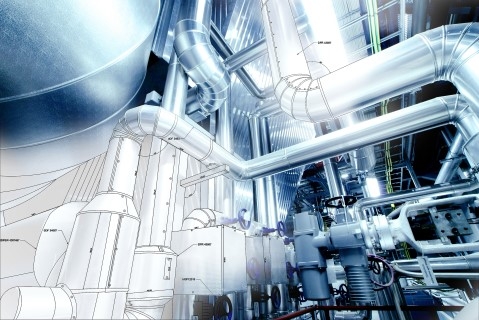
China's heating fuel policies to boost natural gas imports
Total gas imports surged 20.9% to-date.
Increased demand for heating will ensure China's appetite for natural gas imports to remain elevated over the winter months, says BMI.
The research house notes that the outlook for the longer term remains equally positive, with the government expected to enact further pro-gas policies to clean up the national energy mix and create additional demand to absorb new contracted gas volumes.
Here's more from BMI:
Following a record gas purchasing spree in September, China imported a more moderate 3.8mn metric tonnes of natural gas in October 2016, according to figures released by the General Customs Administration.
Nonetheless, imports for the month still grew 6.4% on year, as a seasonal uptick in heating needs entered into full swing, driving overall demand October pipeline gas imports retreated slightly, falling 0.3% y-o-y amid lower volumes from Myanmar and Turkmenistan.
This was partly offset by LNG imports, which grew 14.9% y-o-y, on the back of upswing in deliveries from mega-projects in Australia and Qatar.
Additionally, state-owned giant PetroChina reportedly negotiated two-thirds of its contracted LNG volumes from some suppliers to be delivered during the winter months, contributing to stronger offtake.
Total gas imports to date (M1016) are up 20.9% on year.
The increase in imports is driven by comparable growth in domestic gas demand, which posted yearly growth for the 13th consecutive month in October.
We note that the pace of growth could slow down over the coming months, as the government seeks to avoid a repeat of a gas shortfall (particularly in the north and north-eastern provinces) seen in 2015, when stronger-than-anticipated demand forced it to ration gas supplies to certain industrial segments and impose consumption caps on residential users.
CNPC and CNOOC have already made plans to increase gas supplies over Q416-Q117, while PetroChina received permission to raise city-gate gas prices by 10.0% until March 2017 to control overconsumption.
This supports our long-held view for China's gas imports to see positive growth beyond 2016, as we expect to see continuous regulatory support from Beijing to drive gas consumption over the medium-to-long term committed to its goal to increase the share of natural gas in its overall energy mix from about 6.0% currently to 10 .0% by 2020, in a bid to arrest severe air pollution that continues to plague its major urban centres.
Moreover, incentivising gas use over alternative fuels such as coal will be key to avert risks of an oversupply, as the start-up of several long-term contracts (mostly with projects in Australia and the US) over the coming two to three years is set to expand China's annual LNG import obligation by 12.0-15.0bcm.
























 Advertise
Advertise






